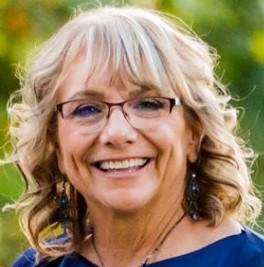Megan Downing, Northern Kentucky University – Philanthropy and Benefits to Students
 Giving back is a powerful way to help a community.
Giving back is a powerful way to help a community.
Megan Downing, associate professor of organizational leadership at Northern Kentucky University, discusses how to get students into the act.
Dr. Megan Downing has been with Northern Kentucky University since 2001. She joined the program as an Assistant Professor in 2015 after serving five years as NTTR faculty and as the program coordinator and primary academic advisor from 2010-2015. Dr. Downing also serves as the faculty advisor for NKU Chapter of the National Society of Leadership and Success.
Dr. Downing completed her undergraduate and graduate studies at NKU with her B.S. in Business Education/Office System Technology (2002), Master of Science in Information Systems (2006), post-master’s certificate in Higher Education Administration & College Student Development (2009), and her doctoral studies in Educational Leadership (2012) with her dissertation on Student Perceptions of Faculty-Student Interaction in Online Learning.
Dr. Downing’s scholarly activities have focused on leadership education and development, impostor phenomenon, service learning, student philanthropy, teamwork, academic advising, and online education. She has presented and served on panels at national and international conferences in the United States; London, England; Barcelona, Spain; and Montreal and Ottawa, Canada. Her scholarly work has been published in the International Journal of Organization Theory and Behavior, Journal of Leadership Education, Journal of Nonprofit Education and Leadership, and Journal of College Student Retention. She has also co-authored a handbook on effective teamwork and a book chapter on electronic service learning or “e-service learning.”
Her 2013 ATMAE Conference Proceedings Paper on Fostering Social Presence through Faculty-Student Interaction for Successful Online Learning was recognized as the top 2013 Conference Proceedings paper in the Distance Learning track. Megan is a member of the following professional organizations: International Leadership Association and Association of Leadership Educators.
Philanthropy and Benefits to Students
Over the past 20 years, NKU has taken a programmatic approach to incorporating a philanthropy component into our classrooms.
Students are given real money, typically $2,000. They then identify needs in the community and nonprofits addressing those needs. The students in each class decide where to best invest their $2,000.
Adding this philanthropy component has multiple benefits.
There’s the obvious benefit to the community. Our students have invested nearly $1 million in over 400 nonprofits.
But the benefits to students are striking, too. They become more aware of community needs and more committed to addressing them. On the academic side, student success measures are improved, from learning course content to retention and graduation.
With over 6,000 students over the past two decades as our sample, we are relatively certain of these results.
But something disruptive is happening in higher education. More and more, students are attending class virtually. COVID-19 accelerated this transformation … and made it more important to analyze whether philanthropy has the same benefits when added to an online course as when added to an in-person class.
I examined this question, along with my colleague Dr. Julie Olberding, who directs NKU’s master’s in public administration program, by looking at course outcomes and student surveys.
We found is that the philanthropy experience had just as positive outcomes for online students as with face-to-face students on various measures, including interest in the course, learning and applying course material, awareness of community needs, a responsibility to help others in need, and a belief they can make a difference in the world.
As one student explained: “I have learned that working in a team for a good cause can help a lot of people. I am now more aware of organizations in my community that are out there to help others.”


